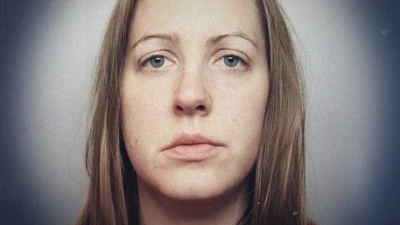We've updated our Privacy and Cookies Policy
We've made some important changes to our Privacy and Cookies Policy and we want you to know what this means for you and your data.
Drugs advice body needs scientists, say campaigners
Campaigners have criticised government plans to remove the legal requirement for scientists to be on the Advisory Council for the Misuse of Drugs.
The proposal follows the sacking of top adviser Professor David Nutt last year, and seven other advisers' resignations amid complaints that politics rather than evidence was driving drug policy.
The Drug Equality Alliance accused ministers of "seeking vengeance".
The ΒιΆΉΤΌΕΔ Office insisted scientific advice remained "absolutely critical".
The proposals, in the Police Reform and Social Responsibility Bill, remove the requirement for the ACMD members to include a doctor, a dentist, a vet, a pharmacist, a drugs industry expert and a scientist from another branch of chemistry.
ΒιΆΉΤΌΕΔ home editor Mark Easton said the proposed change had "received no publicity from the ΒιΆΉΤΌΕΔ Office", but several groups had begun a campaign around the issue.
The last Labour government sacked Prof Nutt as council chairman in October last year, after he criticised the decision to reclassify cannabis to Class B from C.
He accused ministers of devaluing and distorting evidence and said drugs classification was being politicised.
Darryl Bickler, of the Drug Equality Alliance, which campaigns for rational rather than subjective drug laws, accused the government of "reaping vengeance by sweeping away potential heretics that might seek to use evidence rather than tabloid hysteria to fulfil the need to be seen to be doing something".
He added that the bill "would effectively emasculate and bypass" the ACMD.
The Campaign for Science and Engineering suggested the government was "trying to take us back to the time of 'minister knows best'".
The committee "could become filled with 'yes men'", warned Oxford professor of neurobiology Colin Blakemore, former chief executive of the Medical Research Council.
Prof Blakemore told the ΒιΆΉΤΌΕΔ Radio 4 Today programme: "You can see why evidence and advice might be inconvenient to a minister who is confident in his or her own judgment.
"But, as [US President] Barack Obama said just before his inauguration, 'We should listen to the scientists even when what they say is inconvenient'.
"I think another look at the range of expertise that was required statutorily on the advisory council was overdue. But the deliberate exclusion of any reference to any scientist on the committee is obviously worrying."
'Accelerating' challenges
The government said the change would allow for more "flexibility".
Crime Prevention Minister James Brokenshire said: "Scientific advice is absolutely critical to the government's approach to drugs and any suggestion that we are moving away from it is absolutely not true.
"Removing the requirement on the home secretary to appoint to the Advisory Council on the Misuse of Drugs at least one person with experience in six specific areas will allow us greater flexibility in the expertise we are able to draw on.
"We want the ACMD to be adapted to best address the challenges posed by the accelerating pace of challenges in the drugs landscape."
Top Stories
More to explore
Most read
Content is not available








